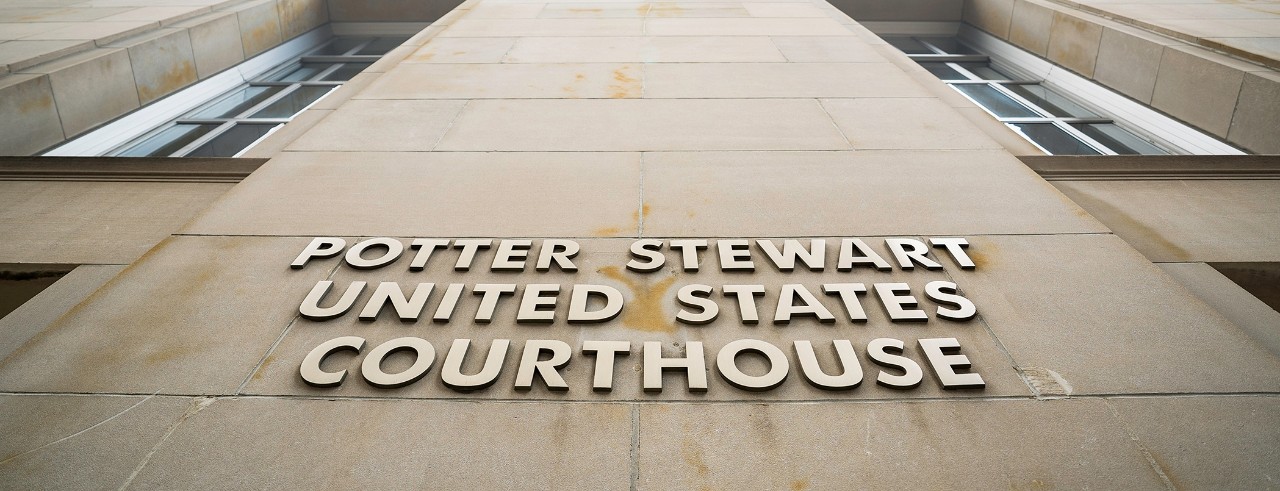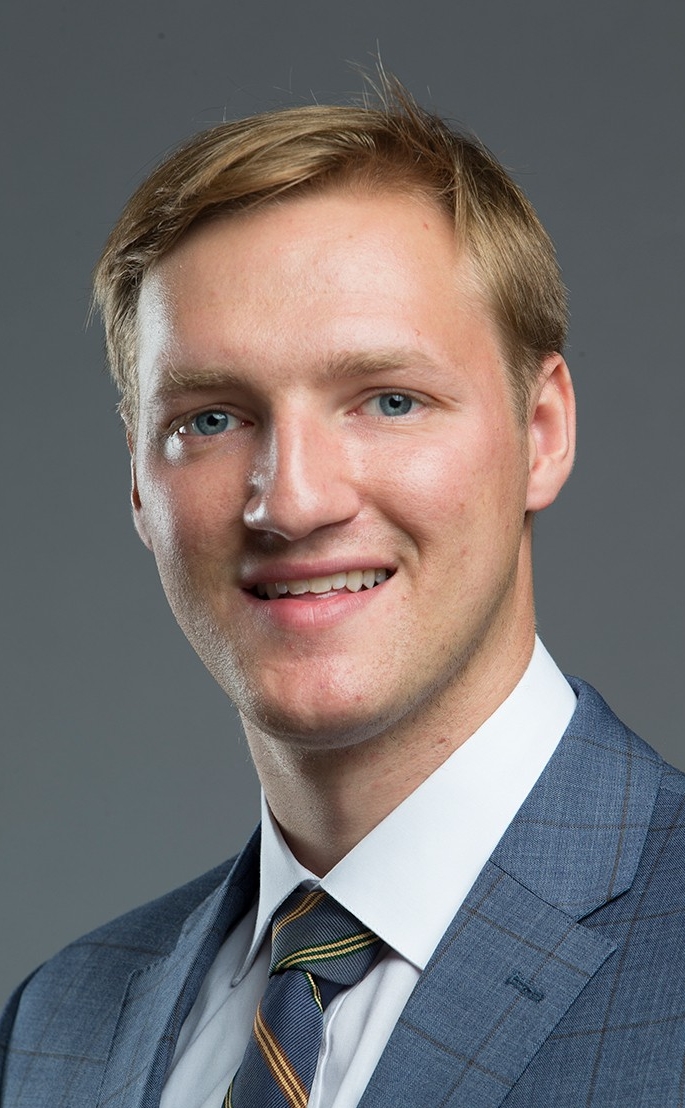
UC Law Clinic prevails in Sixth Circuit
Third-year students make successful oral argument before Court of Appeals
In January, as most students were returning for the Spring Semester, third-year students Trane “T.J.” Robinson and Katie Basalla were making what would turn out to be a successful oral argument before the U.S. Court of Appeals for the Sixth Circuit.
As students in the Sixth Circuit Clinic at Cincinnati Law, Basalla and Robinson worked with Clinic director Colter Paulson and co-director Nathan Colvin in representing a client seeking to appeal a criminal conviction and sentence. In a decision issued March 12, 2021, the Sixth Circuit remanded the case for resentencing, agreeing with the Clinic that an obstruction of justice enhancement was incorrectly applied in sentencing.
“The oral argument was like nothing I’d ever done before,” said Basalla. “You can simulate writing a brief and the work that goes into that in law school. You can’t really mimic the feeling of going in front of the Sixth Circuit.”
The Clinic’s client, Jason Rosales, was charged with conspiracy to distribute over 500 grams of methamphetamine, and was convicted of conspiracy to possess with intent to distribute and attempt to possess with intent to distribute narcotics. At trial, the jury was asked to consider the amount of methamphetamine involved in the entire conspiracy, rather than the amount Rosales was involved in. Additionally, at sentencing, Rosales was given the obstruction of justice enhancement because he allegedly threw his phone down, causing it to break, as he was being arrested.
The Sixth Circuit Clinic was appointed to represent Rosales pro bono on appeal under the Criminal Justice Act. Under the direction of Paulson, students in the Clinic got to work researching and drafting the opening brief.
The Clinic argued three primary issues in the case. They said his agreement to pick up drugs was not a conspiratorial agreement, and therefore insufficient evidence supported his conspiracy. Further, they claimed, a concededly improper jury instruction prejudiced Rosales’ sentence, and the court did not make proper findings to enhance Rosales’ sentence for obstruction of justice.
“The stakes were just so real, because our client was sitting in jail, and we felt we had a strong argument to throw out his convictions or at least reduce his sentence,” said Robinson.
Colvin led the Clinic students in preparing their reply brief, which they filed in early December. The Court honored their request for oral argument, setting the argument date for January 14.
“Preparing for oral argument was especially daunting,” said Basalla. “Nathan [Colvin] and Colter [Paulson] were exceptional in helping us through the process.”
Colvin and Paulson led moot court rehearsals with Basalla and Robinson. They brought in a number of Cincinnati Law professors along with practicing attorneys and judges to aid in moots as well.
“They [Colvin and Paulson] spent more time preparing us than they would have had they just done the argument themselves,” said Robinson. “I’m really grateful for their devotion of time and energy.”
Basalla and Robinson argued the case in front of a panel composed of Judges Eric L. Clay, Bernice B. Donald, and Richard F. Suhrheinrich.
“I felt so prepared for questions,” said Basalla. “I was even able to weave in some of my prepared remarks to answer them.”
“I had memorized my opening and knew what I was saying, but then you get to that first interruption. It’s a relief because that’s when you can step into the argument and say what you need to say,” said Robinson. “That was the moment it got very real.”
Paulson said they faced a skeptical panel that pressed Basalla and Robinson on difficult questions.
“They did an excellent job of seeing under the questions and challenging the assumptions they were based on,” said Paulson. “That’s difficult to do on your feet in front of a panel of judges.”
When the opinion was published, Basalla and Robinson both said they felt overjoyed. Not only because they were successful, but because they were able to help their client.
“To me, it’s the culmination of my law school experience,” said Robinson. “It definitely affirms for me that this is the right career path.”
After graduation, Basalla will start work at Jones Day in Cleveland, and Robinson will clerk with Justice Patrick DeWine of the Ohio Supreme Court.
About the Sixth Circuit Clinic
The Sixth Circuit Clinic was founded in 2003 and represents indigent prisoners. Under the direction of an attorney, Cincinnati Law students review lower court record, find issues, draft briefs, and participate in a mock oral argument in a Sixth Circuit courtroom. Learn more about Cincinnati Law Clinics.
Related Stories
UC students destigmatize stress in nursing
May 7, 2025
UC nurse anesthesia graduate students lead a research-based effort to address stress and burnout in nursing, coping strategies, and the importance of mindfulness and peer support.
Thousands of graduates celebrate degrees at UC
May 6, 2025
The Cincinnati Enquirer shared a photo gallery from UC's spring commencement featuring the largest spring class in UC history.
UC, UC Health see frontline student training as workforce...
May 6, 2025
Amid ongoing challenges across the health care workforce, including burnout and shortages, the University of Cincinnati is working to tackle this issue through a program that embeds students in clinical settings.


